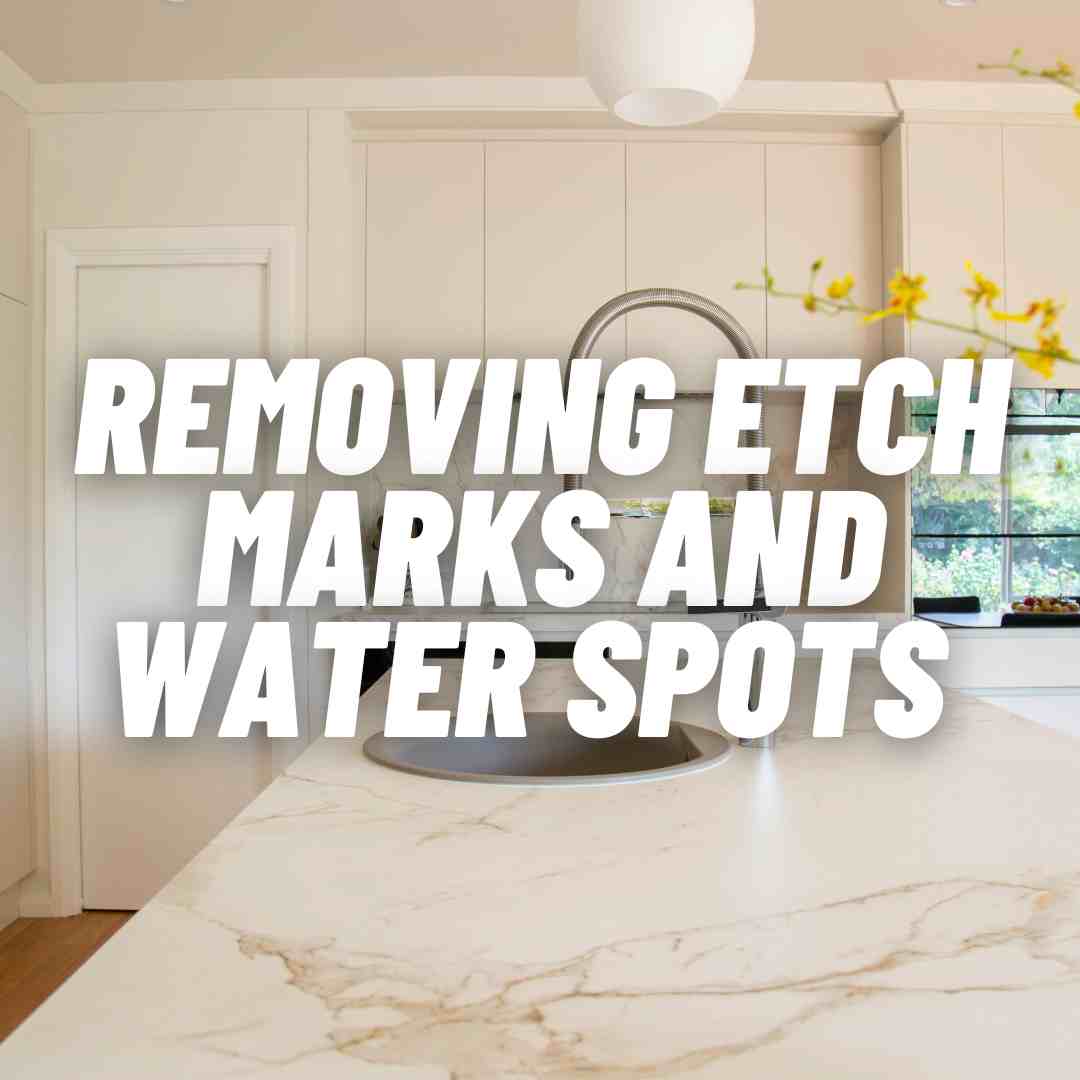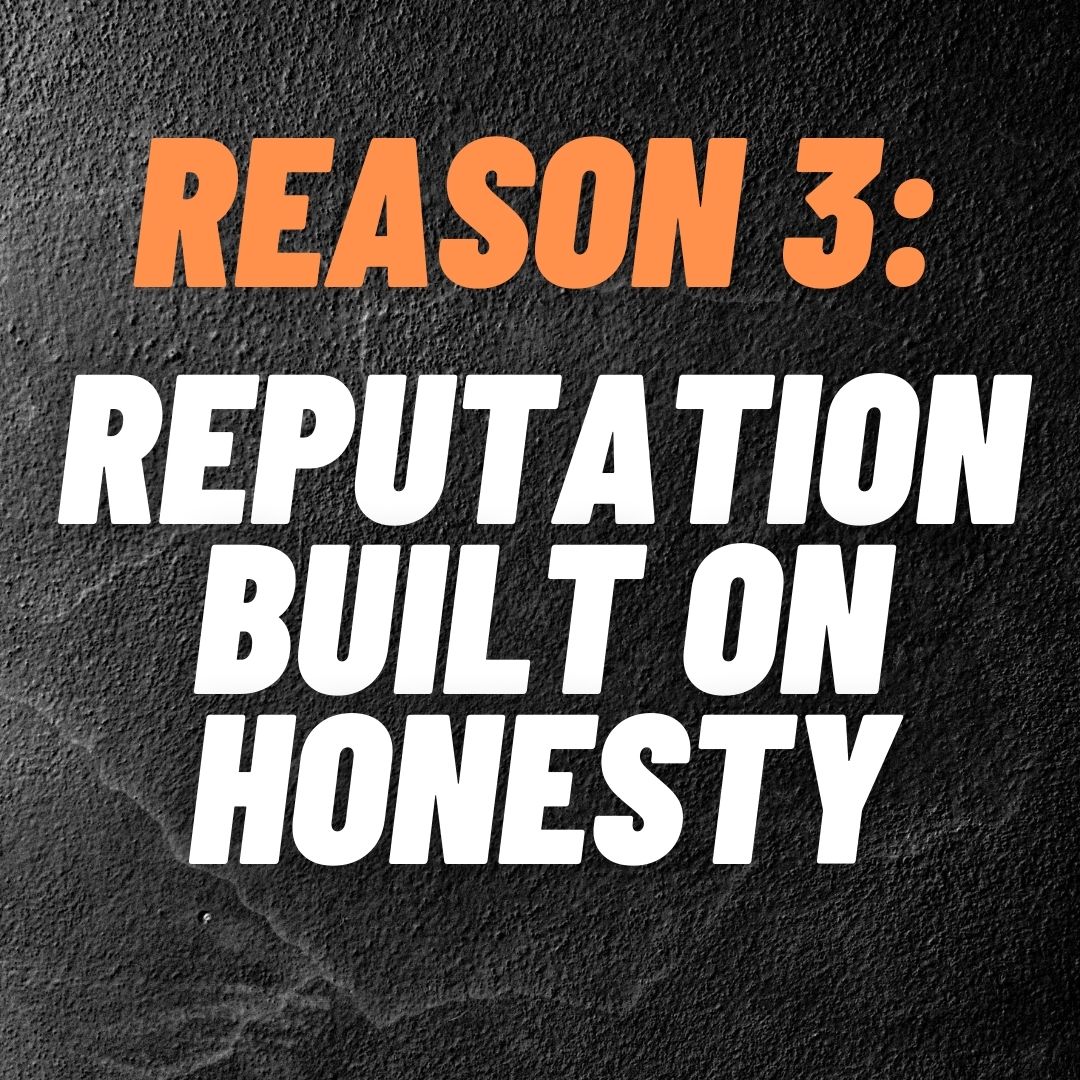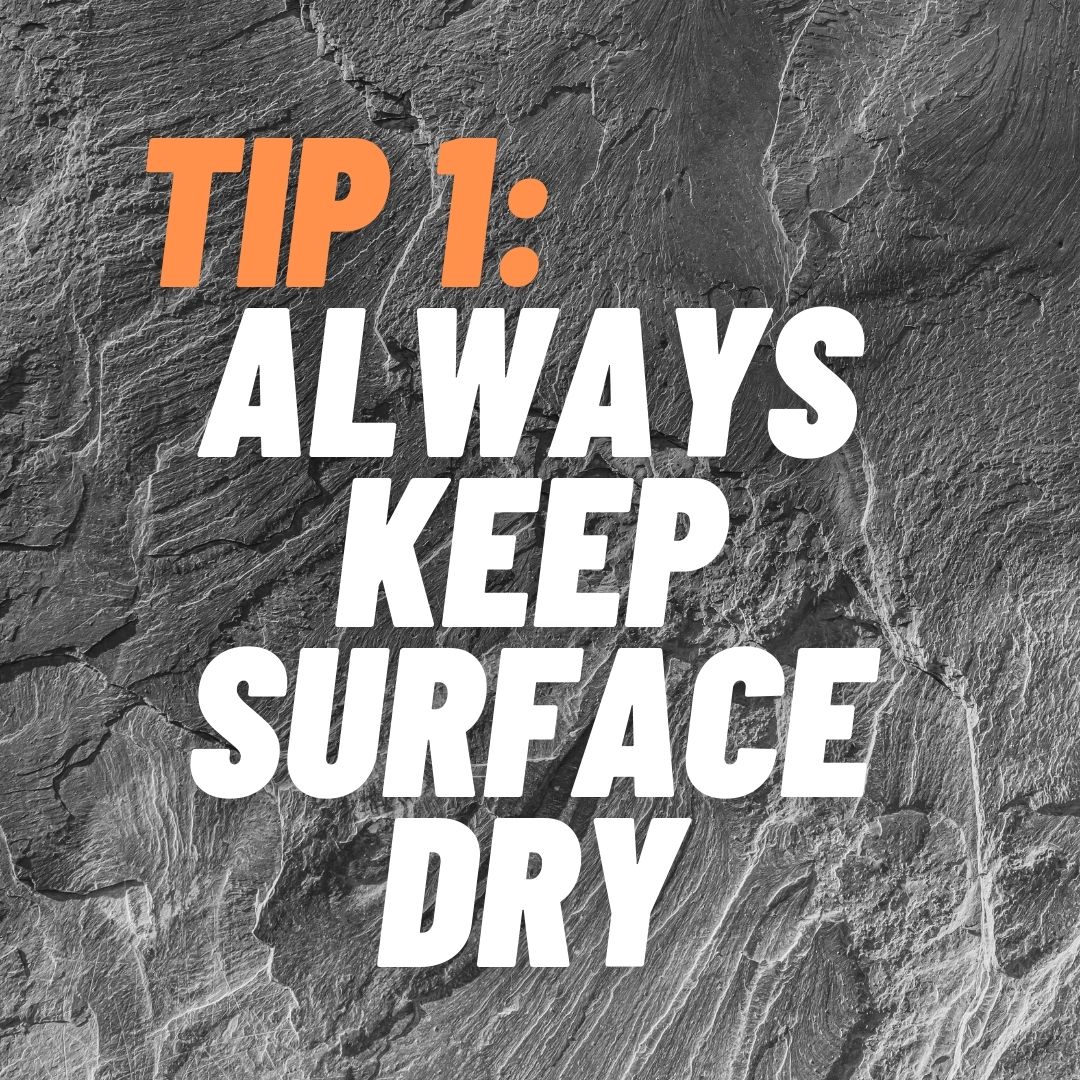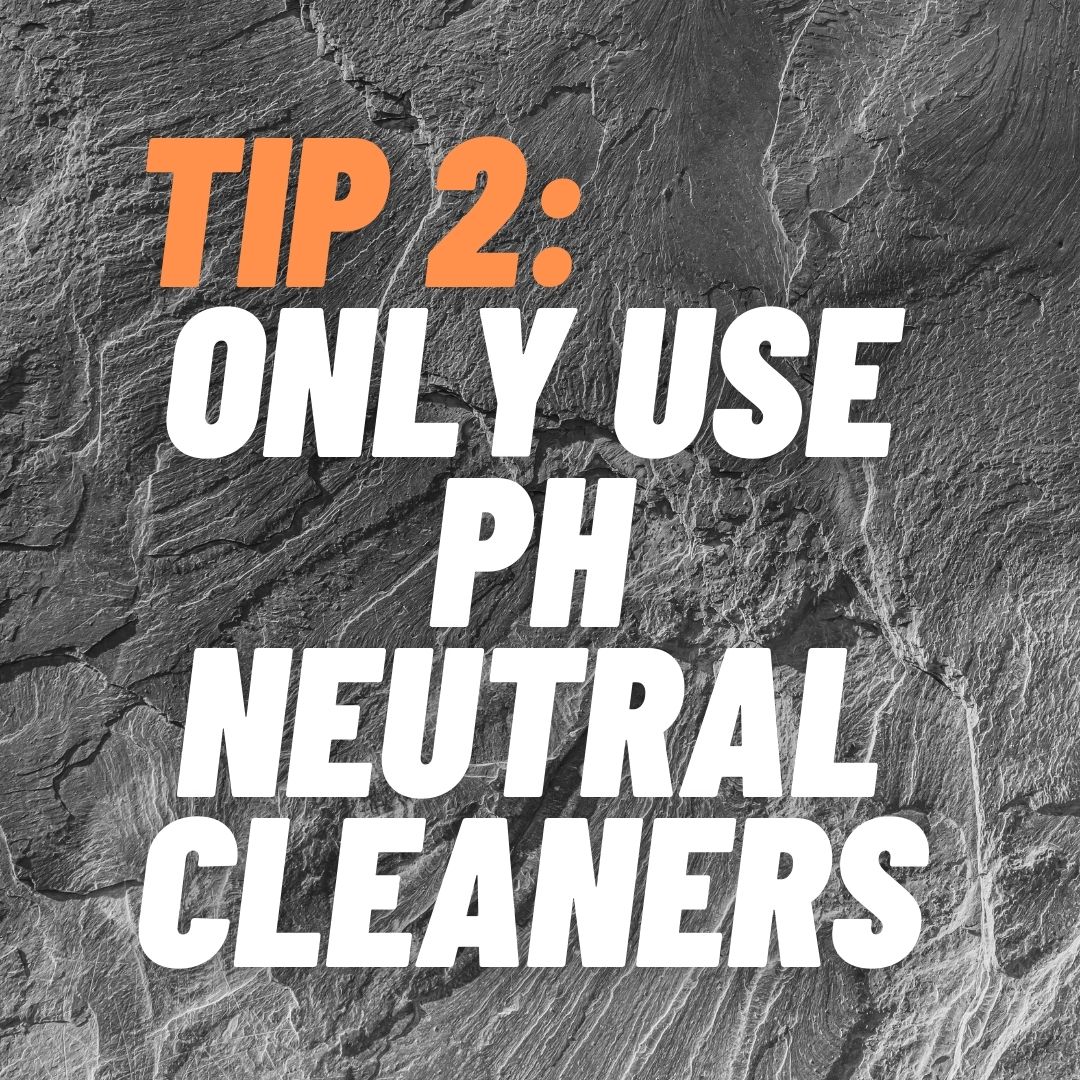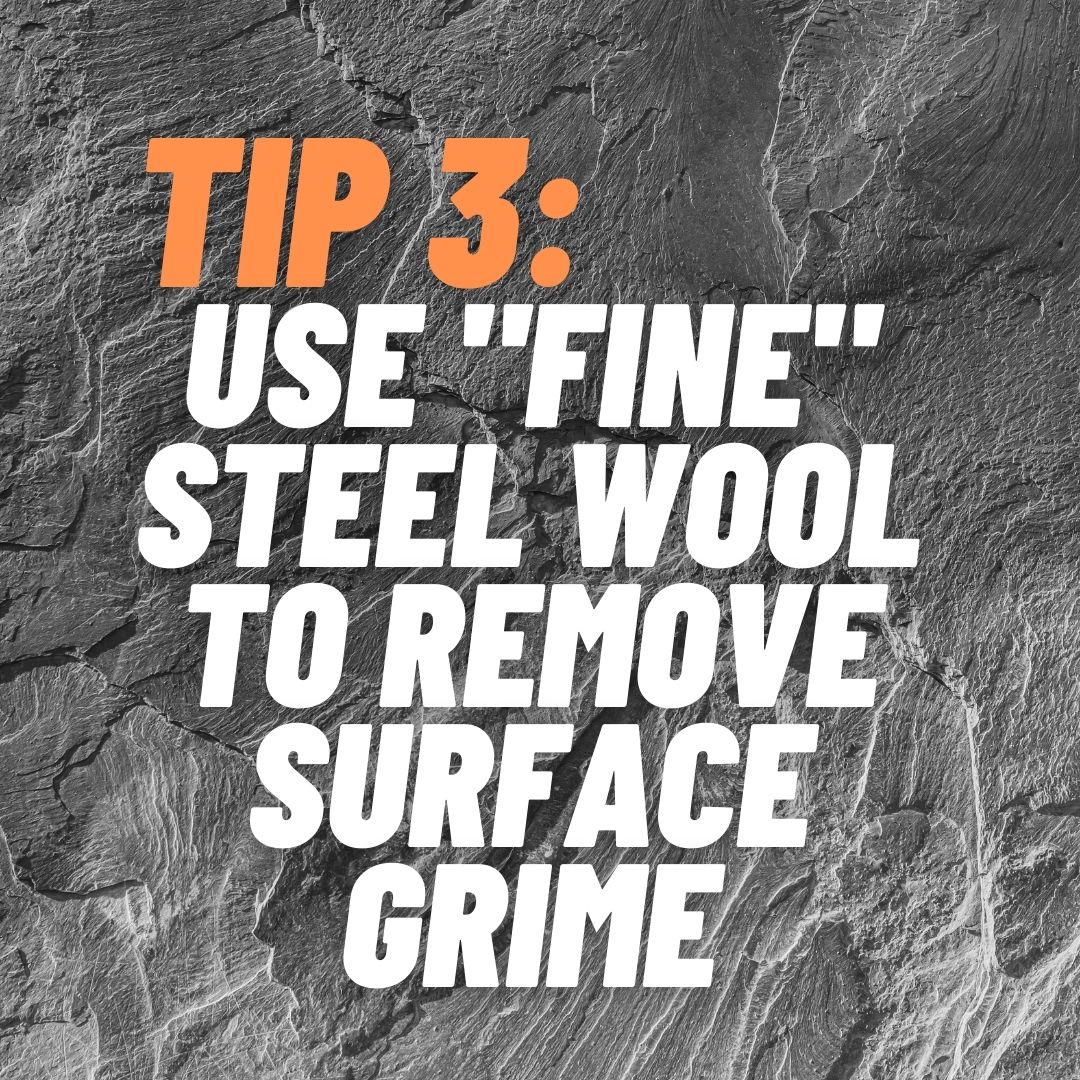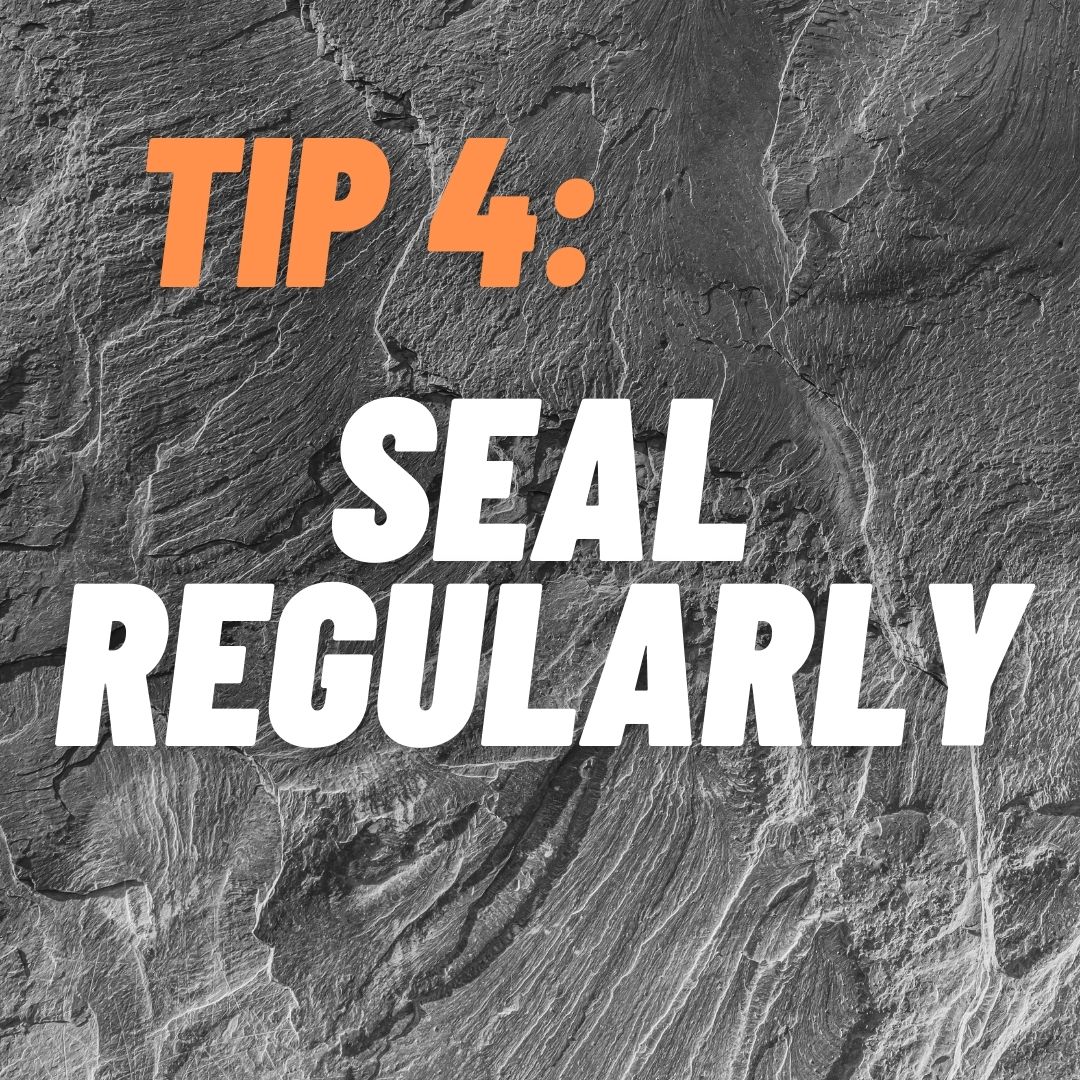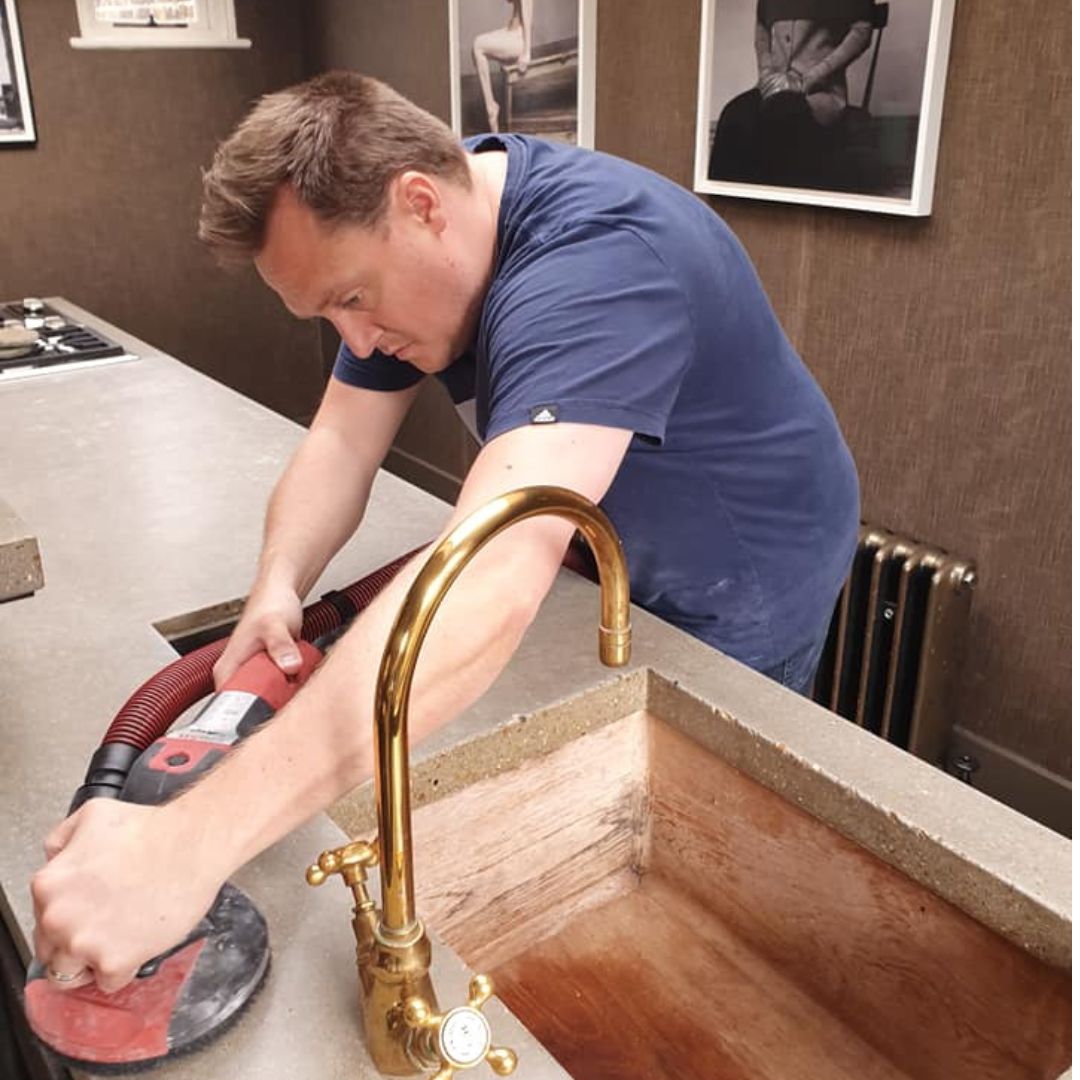Removing etch marks or water spots from marble surfaces can be a challenging task. However, with the right tools and techniques, it can be done effectively.
One of the most important things to keep in mind is to avoid using acidic cleaners on marble surfaces as they can cause etching. Instead, opt for pH-neutral or alkaline cleaners that are specifically
designed for use on marble surfaces.
Hard water and calcium carbonate buildup can also cause water spots on marble surfaces. To prevent this, it is recommended to wipe down marble surfaces after each use and to use a squeegee to remove excess water.
